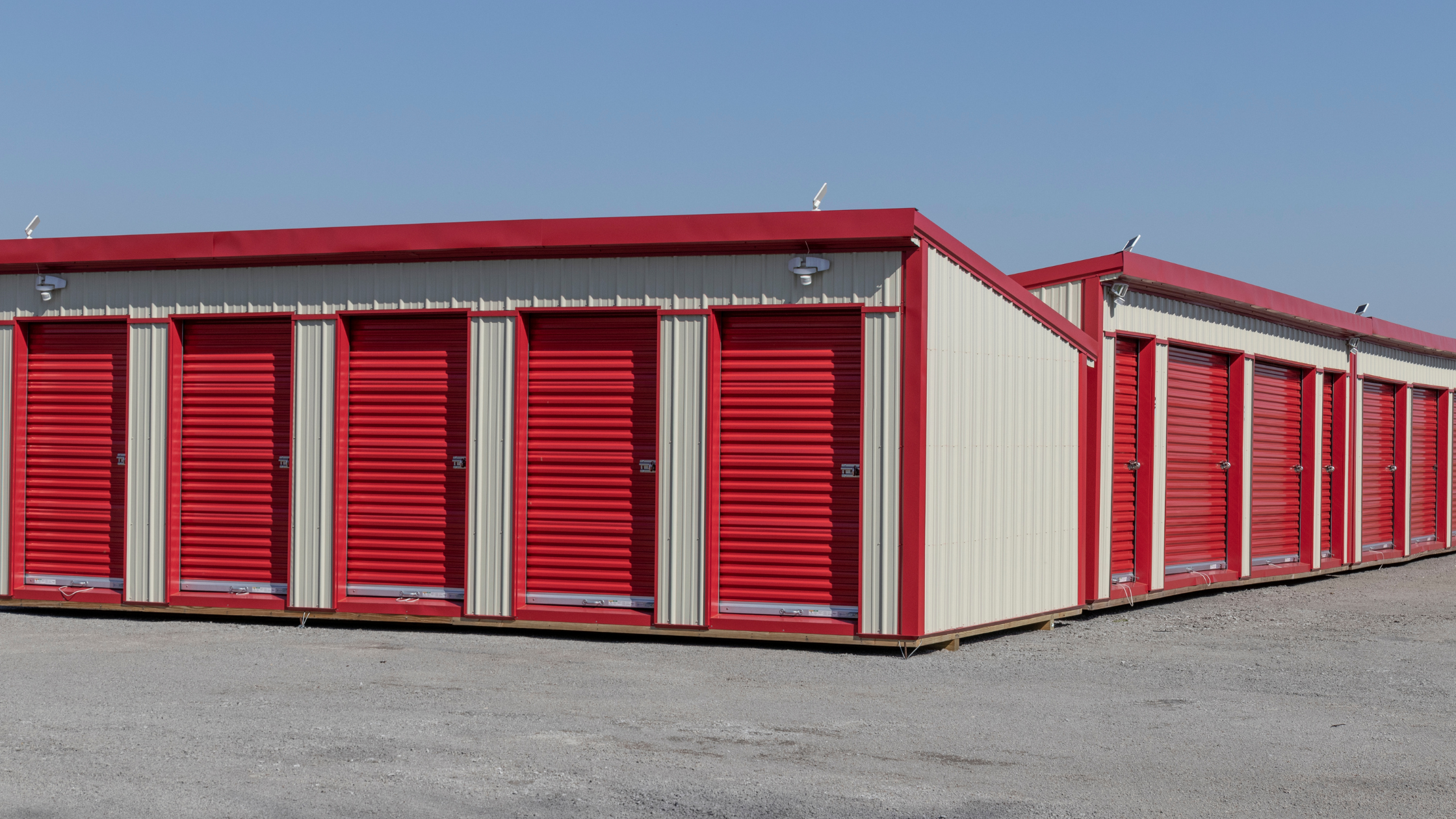Choose the right lock
Most self storage facilities are equipped with robust security measures to ensure the safety of your belongings. These measures include perimeter fencing, digital video monitoring, and electronic gates with keypad access. More and more facilities offer keyless systems that only require a mobile app to gain entry, while others have “smart” units.
It’s comforting to know that your belongings are so well protected, but there are options to further safeguard your valuables. You can purchase self storage insurance or add a Storage Shield Tenant Protection Plan to your security toolkit.
As an added level of security, it’s advisable to invest in a high-quality lock regardless of whether or not your facility is equipped with mobile or smart technology.
Importance of Choosing the Right Lock for Your Self Storage Unit
Even with updated security measures in place, the lock on your storage unit is the ultimate line of defense against theft. Choosing the right lock for your self-storage unit is crucial to ensure the safety of your belongings.
Types of Locks for Self Storage Units
Several types of locks are available for self-storage units, each with advantages and disadvantages. Understanding the different types of locks and their features can help you choose the best one for your needs.
Padlocks
Padlocks are one of the most common types of locks used for self-storage units because they are easy to use and come in a variety of sizes and styles. They are also relatively inexpensive, making them an affordable option.
Two padlocks are typically used for self-storage units: keyed padlocks and combination padlocks. They are not the most secure option, as a thief with bolt cutters can easily get into your storage unit.
Combination locks
Combination locks are a popular option for self-storage units because they do not require a key. They have a series of numbers or letters that must be entered to unlock.
Combinations are easy to reset; but, like padlocks, these locks are easily cut.
Disc locks
Disc locks are another popular type of lock for self-storage units. They are designed specifically for storage units and are made of hardened steel, making them more difficult to cut than padlocks. Their unique design makes them resistant to picking and drilling and the shorter shackle makes them more difficult to cut.
However, disc locks can be more expensive than padlocks and are not as widely available. They also require a specific type of key, which can be a disadvantage if you lose the key or need a duplicate.
Cylinder locks
Cylinder locks are similar in design to the locks used on residential doors. Like disc locks, they are resistant to picking and drilling. A hardened steel shackle makes them difficult to cut.
Factors to Consider When Choosing a Lock
When choosing a lock for your self-storage unit, it’s important to consider several things.
- The security level of your facility is key in determining whether to opt for a medium or high-quality lock. Remember that the price of the lock often reflects its quality, so it’s best not to compromise the security of your belongings.
- If you plan on using self-storage for an extended period, choose the best lock that fits your budget range. For added security, you might want to consider a shrouded shackle, which is more difficult to drill into due to its protective covering.
- Don’t forget to think about the size of your padlock and where you’ll be using it. An industrial-sized padlock is not necessary for a small unit.
- When deciding between a regular and disc padlock, the latter provides better security since they are difficult to cut with bolt cutters.
- Lastly, ensure your padlock is made of materials that provide strength, durability, and resistance to corrosion, such as steel, alloy steel, aluminum, carbides, or brass.For more detailed information, read 15 Best Locks for Storage Units.
Conclusion
Choosing the right lock for your self storage unit is crucial to ensure the safety of your belongings. Several types of locks are available, each with its advantages and disadvantages. When choosing a lock, consider the security level, price, ease of use, availability, and compatibility.


